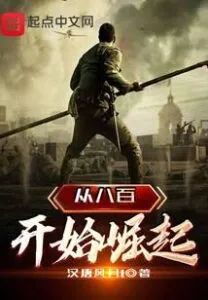Imperial Overlord - ~ One thousand two hundred and twenty-two generals' departure
“Your Excellency General! Please board the ship!” Wearing white gloves, a naval lieutenant stood by the gangway, stood at attention and saluted, and sang loudly to the general of the 6th Army in front of him.
Fengwen Yamashita carried the command knife, looked back at the generals behind him with a gray face, sighed helplessly, and stepped on the first step of the gangway.
“Your Excellency General!” Behind him, Shimada Zhongzuo of the 6th Army Air Force stretched out his hand, as if he wanted to keep the commander in front of him.
His face was full of bitterness, with an unwilling twist: “Your Excellency General! Take care of your body on the road! We will do our best here to buy time for Malaya!”
“Yo Xi!” Yamashita Fengwen nodded solemnly, looking at his subordinates, including the 6th division commander Kanda Masanune, Yamashita Fengwen turned around, no longer nostalgic for New Guinea, which was on the verge of collapse. Boarded the destroyer that came to pick him up for retreat.
“Shimada-kun… General Yamashita has already left. The battle situation in New Guinea seems to be out of control.” Iijima Zhongzuo, who was standing beside Shimada Zhongzuo, said dejectedly, watching Yamashita Fengwen walk up the gangway. sighed.
From the day he was transferred to New Guinea, he knew the situation here was not too optimistic. The next day he flew his me-1o9e fighter into the air, but he still couldn’t change the situation here.
The performance of the American p-4o fighter is also decent, and it can still maintain a loss ratio of about 3 to 2 in the face of various fighter jets driven by the Japanese 6th Army Air Force.
In other words, the average American loses three planes, and the Japanese army loses two planes, which the Japanese side cannot afford in any case.
It is also for this reason that Japan then transferred almost 100 reinforcements of various types of fighter jets. Unfortunately, this move turned out to be completely a fuel-filling tactic.
What the Japanese were most afraid of was the refueling tactic, so they finally had to give up the idea of competing for air supremacy in New Guinea and concentrate their aircraft on the decisive battle in Malaya.
This decision left the Japanese 6th Army Air Corps on the island of New Guinea without aircraft, and the number of aircraft could no longer catch up with the United States.
After losing the equivalent number, their record can no longer be maintained. Every time they go to battle, Japanese pilots have to face three times or even ten times as many U.S. aircraft to encircle and suppress them, and the losses are naturally more.
Today, the Japanese 6th Army Air Force has lost about 3oo aircraft, while the loss of the United States has only risen to 4oo aircraft.
In other words, the battle loss ratio of the 6th Army Air Forces of the two sides has reached a fair ratio of 1 to 1 in recent days.
Such losses to the U.S. military are completely acceptable, and there is even a tendency to be ecstatic in the battle report. After all, relying on the big tree of American industry and the American population as support, the ratio of 1 to 1 is simply a triumph of victory.
Not to mention Japan, which has no industrial foundation at all, even Germany, which has a higher industrial level, cannot afford a 1-to-1 battle loss comparison with the United States.
“We have less than 50 planes left, and almost all the bombers have been shot down or moved away…” Said Shimada Nakaji also very depressed.
As the commander of the Japanese 6-base air force on the island, he naturally knew what the situation was like.
The Americans have built airfields on the islands, and the main airfields in Japan have been completely destroyed by bombing, and the remaining planes can only rely on concealed field airfields to take off and fight in secret.
The Americans are now investing in New Guinea’s aircraft, including bombers, there may be 700 aircraft, while the Japanese army has only about 50 pitiful aircraft.
Such a huge power gap, not to mention the Japanese 6th Army Air Force, which is about to smash the elites, even the elite Luftwaffe may not be able to support it.
What’s more, the performance gap between the two sides’ aircraft on the Pacific battlefield is not as huge as the gap on the European battlefield.
Because Germany invested in research earlier, has relatively strong technical reserves, and has taken many detours, the ta-152 fighter equipped by the front-line air force has a large technical gap with the MiG-3 fighter.
If you count the Raven fighter jets that Germany is ramping up production, Germany’s advantage in the aviation field can be said to be generational.
However, Japan does not have this technical capability. Its air force is basically developed with German technology. Although the technical advantages are still there, they are not obvious.
The American p-4o fighters, as well as other naval fighters that are about to be put into operation, are not too bad. Compared with the Zero fighter and the me-1o9e fighter exported by Germany, the gap is not so huge.
Because of this, when the Japanese pilots lost their technical level due to the loss, the battle loss ratio between the two sides could no longer be opened.
“For the failure of this counterattack, General Yamashita Fengwen took part of the responsibility. I think General Kanda is also responsible, right?”
Standing not far away, Kanda Masanune has become the highest commander of the Japanese army on the battlefield in New Guinea. The 6th Division under his command suffered heavy losses in the counterattack two days ago.
Although the Japanese counterattack caused a large number of casualties in the U.S. military, and even achieved a dazzling record of annihilating an American infantry battalion for the first time, failure was a failure after all.
This made a loophole in the Japanese defense line, and the barrier in the central mountainous area was finally left behind by the U.S. military.
It is precisely because of this that the Japanese army hurriedly transferred the fierce general of Yamashita Fengwen, and replaced it with Kanda Masatoshi to take the blame.
Seeing Yamashita Fengwen leaving New Guinea lonely, Kanda Masana’s current mood can only be described as “I have a sentence mmp I don’t know what to say.”
He really wanted to scold his mother, because from the beginning to the end of the battle, he just followed Yamashita Fengwen’s orders to attack or retreat. As a result, the battle situation was so corrupted that Yamashita Fengwen patted his **** and left!
The Air Force can withdraw in one sentence, the Navy can also be ordered to leave, and the rest will be left to the 6th Division and the unfortunate 35th Division to bear!
Even more unfortunate is the 29th Division. This division, which is not the main force, was completely revoked because of heavy losses in the counterattack a few days ago.
The remaining troops of the 29th Division were added to the 6th and 35th Divisions, which also meant that the Japanese ground troops standing in front of the US 1st Army and the 2nd Army were less than when the war started. Got a team!
Please remember this book’s first domain name: . All come to read the mobile version reading website:














